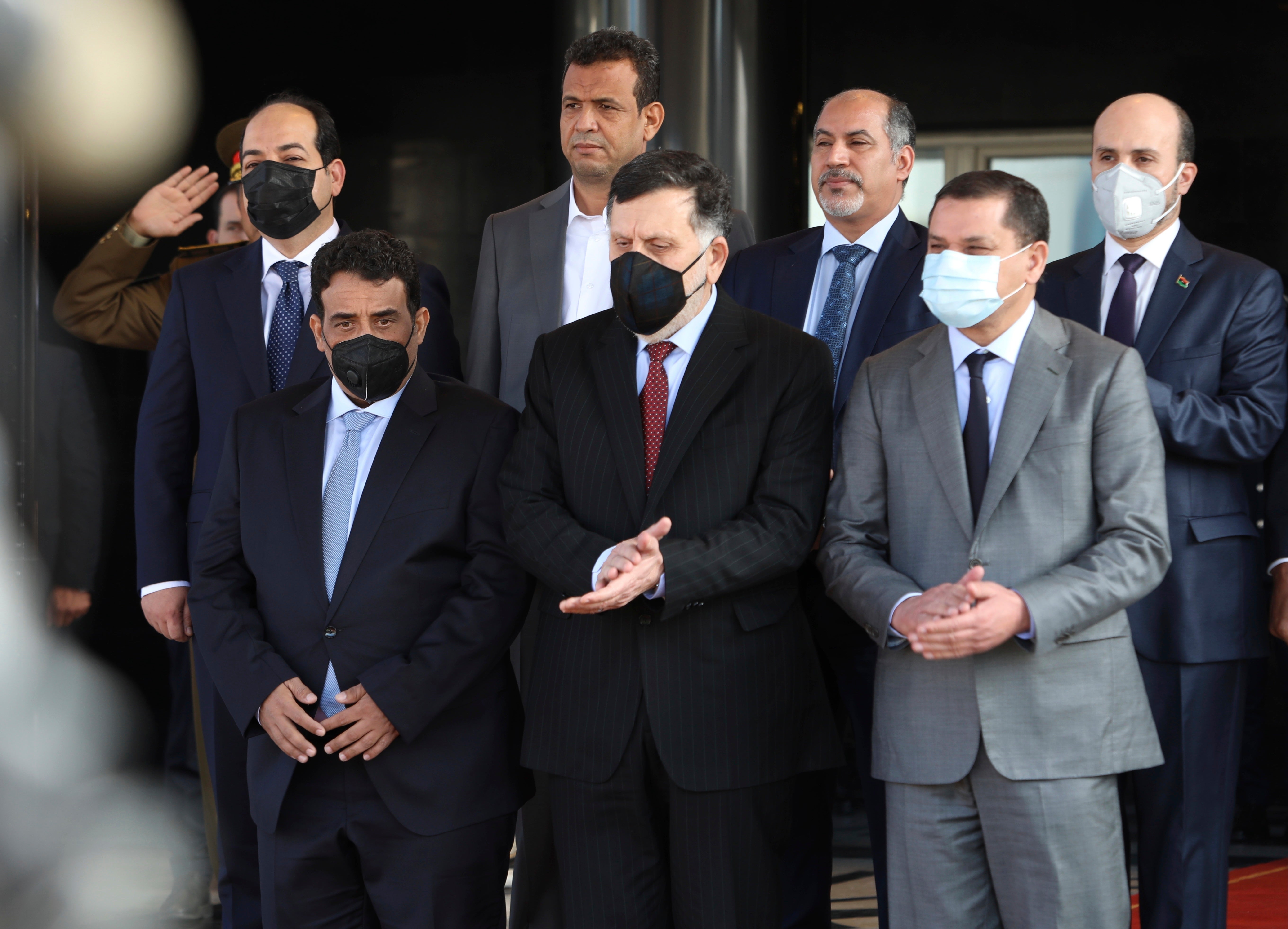Interim Libya government assumes power after smooth handover
A transitional government in conflict-stricken Libya has taken power in the capital Tripoli, officially beginning a tenure designed to end with democratic elections late this year

A transitional government in conflict-stricken Libya took power in the capital Tripoli on Tuesday, officially beginning a tenure designed to end with democratic elections late this year.
Fayez Sarraj, head of the outgoing United Nations-supported administration in western Libya, transferred power to Prime Minister Abdul Hamid Dbeibah, and Mohammad Younes Menfi, who chairs a three-member Presidential Council.
The ceremony in Tripoli came a day after Dbeibah and his Cabinet were sworn in before lawmakers and Libya’s top judges in the eastern town of Tobruk. Lawmakers had already endorsed the interim government last week amid international pressure to implement a U.N.-brokered political roadmap.
That roadmap, agreed to by a U.N.-picked Libyan political forum last year, set Dec. 24 for general elections in the oil-rich country.
The unexpectedly smooth transfer of power is seen as an important step to end the chaos in the North African country. The lack of a proper handover among legislators in 2014 was a major factor in the split of Libya’s institutions.
“Today is yet another historic day for Libya,” Claudia Gazzini, a Libya expert at the International Crisis Group, said of Tuesday’s handover. The interim government, however, would face huge challenges, mainly avoiding political impasse or a relapse of war, she said.
The presence of thousands of foreign forces and mercenaries is another major challenge. The U.N. Security Council last week called for countries with troops and mercenaries in Libya to withdraw them “without delay.”
The U.N. has estimated that there are 20,000 foreign fighters in Libya, including Syrians, Turkish Sudanese and Russians brought to the country by the rival sides.
Libya was plunged into chaos when a NATO-backed uprising in 2011 toppled longtime ruler Moammar Gadhafi, who was later killed. The country was in recent years split between rival east- and west-based administrations, each backed by armed groups and foreign governments.